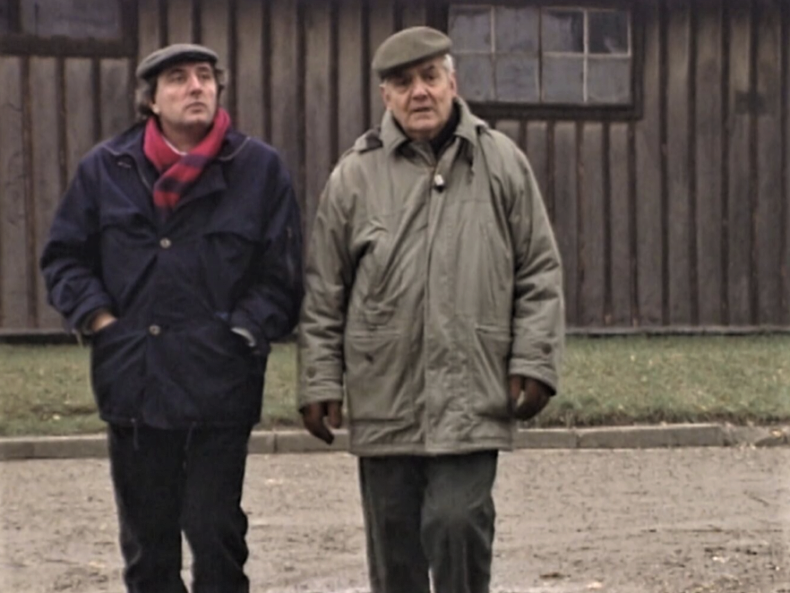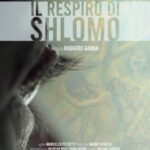Shlomo Venezia, the breath of history

Rome Opera House was packed with young people last week for the national preview of the documentary “Il respiro di Shlomo” (Shlomo’s Breath) on the life of Holocaust survivor Shlomo Venezia,
among the very few Sonderkommandos and the only Italian one to escape death. The first of five events for Holocaust Remembrance Day under the patronage of the Presidency of the Council of Ministers, the evening offered an opportunity of remembrance through the example of a man who suffered the most inhumane experience and became a remarkable spokesman for the tragedy of the Shoah.
Realized by the Shoah Museum Foundation in Rome to honor the centenary of the birth of Shlomo Venezia, who passed in 2012, the documentary is directed by Ruggero Gabbai and written by the historian Marcello Pezzetti. It revolves around an old interview with Shlomo preserved in the Archivio della Memoria (Memory Archive) of the CDEC Foundation.
It is Shlomo’s voice to guide the viewer from his native Thessaloniki, Greece, where he was arrested in his early twenties, to Auschwitz-Birkenau, Mauthausen, and Ebensee. “Everything brings me back to camp: whatever I do, whatever I see,” he said. Through his imprisonment in Auschwitz, he was forced to work in the Sonderkommando, the team of inmates charged with the disposal and  cremation of the prisoners killed in gas chambers. Therefore, his eye-witness account of everyday life right at the heart of the Nazi extermination machine was unique. He entrusted it to his memoir Sonderkommando Auschwitz (2007), a volume that marked a turning point and is still a milestone. And although returning to the camp was always very difficult for him, he repeatedly participated in Memory Train trips which every year take high school students to visit the former Nazi death camp in Poland and Jewish sites in Krakow.
cremation of the prisoners killed in gas chambers. Therefore, his eye-witness account of everyday life right at the heart of the Nazi extermination machine was unique. He entrusted it to his memoir Sonderkommando Auschwitz (2007), a volume that marked a turning point and is still a milestone. And although returning to the camp was always very difficult for him, he repeatedly participated in Memory Train trips which every year take high school students to visit the former Nazi death camp in Poland and Jewish sites in Krakow.
A full theater is always a beautiful thing, and even more so when it is filled by youths”, said the Opera superintendent Francesco Giambrone. “We feel the duty to remember, to pass on the memory, to commit ourselves against oblivion” he added. For the UCEI president Noemi Di Segni, Shlomo’s breath “is the breath of God, the breath of the history of the Jewish people”. Dedicating an evening to remembrance in a symbolic theater of Rome, a place of culture, was not a random choice, she stressed, “because culture can and must assume its responsibilities” and be at the service “of Memory, of coexistence, of freedom”. For the Museum of the Shoah Foundation, which last week inaugurated the exhibition “The Nazi hell. The death camps of Belzec, Sobibor, and Treblinka”, this is the fifth documentary produced for a television audience. “A remarkable and future-oriented commitment” remarked its president Mario Venezia, who is the son of Shlomo and whose memories enrich this educational and value-based challenge with further meaning. The main goal is reaching the new generations and passing the baton to young people and students, an audience “which we try to address as much as possible”. Hence, the day after, a meeting online connected 80,000 students from all over Italy with Holocaust survivor and writer Edith Bruck, who assisted to the preview of the documentary dedicated to Shlomo Venezia.
Presented by Viviana Kasam with an introduction on the extermination camps and all the artistic voices “suppressed in the Shoah”, the film was anticipated by the touching melody of the “Auschwitz violin”. The sound of the instrument, that belonged to the Polish musician Jan Hillebrand, a member of the Auschwitz orchestra, relived in the music recovered and arranged by Maestro Francesco Lotoro. Finally, before the screening, the director and author intervened. Gabbai quoted the Jewish imperative Zakhor-Remember. It is a film”which we hope will help to grow antibodies”, he said. “Shlomo was ‘the’ Witness, – remarked Pezzetti – he explained the facts for what had happened, for what he had seen”. Not surprisingly, the last shot lingers on his eyes. We are in Birkenau, in front of the remains of the crematorium, Shlomo has just finished talking about himself during a visit a few years ago. In his eyes and in his breath, there is everything. A warning, of poignant intensity, for living Memory. “Shlomo’s Breath” was created in collaboration with RAICinema, Forma International and the CDEC Foundation, with the support of Rome Capital, the Lazio Region, the Union of the Italian Jewish Communities, the Jewish Community of Rome, the Sons of the Shoah Association.
The documentary Il respiro di Shlomo was broadcasted by RAI and streamed on RAIplay.
From the top, historian Marcello Pezzetti with Holocaust survivor Shlomo Venezia; the movie poster.
